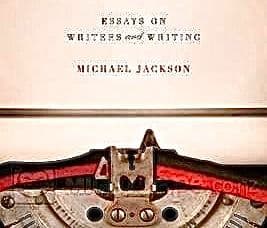The Other Shore: Essays on writers and writing. University of California Press, 2012. 205pp.
By Michael D. Jackson
Anthropologists have long been concerned with their writing lives. Translating the essence of our ethnographic encounters, our daily reflections and intimate understandings is key to the anthropological project. In The Other Shore: Essays on Writers and Writing, anthropologist Michael Jackson, takes us on his deeply personal writing journey, one which drops anchor in a port bearing witness to the multiple intersections of creative lives and writing styles. Through poetry, fiction, philosophy, and anthropology (to name but a few), Jackson teaches us how writing in its multitude of forms can truly do justice to life. He writes:
My argument is that writing is like any other technology of self-expression and social communication, and that in exploring the lifeworlds of writing and writers we discover the same existential imperatives that have always preoccupied human beings, regardless of their cultural or historical circumstances-the need to belong to lifeworlds wider than their own, to feel that they can act on the world rather than merely suffer its actions upon them, and to express what seems peculiar and problematic about their own experiences in ways that resonate with the experiences of others ( 2012: xi)
The act of writing then is an act of re-enchantment, an action of ‘working upon’ and a transgression of our quotidian spatial and temporal limitations. It is a form of freedom, a perpetual crafting and re-crafting of what Jackson elsewhere calls ‘the intersubjective in-between’. In some ways too writing can be a struggle, constraining, a form of solitude which can potentially unmoor us in deeply unsettling ways. Jackson calls on writers such as Rilke, Rimbaud, Cendrars, and Kafka to engage the reader in the struggles inherent in a writing life. In twenty- seven evocative vignettes, Jackson walks us through his personal struggles with creativity, his literary inspirations and lifetime loves, friendships, life-long ethnographic projects, and sometimes difficult relationship with his birthplace, New Zealand. Through the ripples of Jackson’s life, the seismic shifts produced by great personal gains and losses, and a profound inter-textuality, we encounter a compelling writing project that offers ways of ‘pushing back against forgetfulness’ (Cixous, cited in Jackson, 2012: 11).
In this push towards memory, the role of creativity, however that might be defined, is a constant. How we articulate our writing lives and the tensions enmeshed therein looms large for those anthropologists who see themselves (in some ways) as writing against the scholarly grain. As a poet, fiction writer, and anthropologist, Jackson attempts to think through his personal struggle to reconcile the scholarly writing project with that of the poet or fiction writer’s project. In the vignette entitled ‘Writing Fellowship,’ Jackson comes to understand that ‘fiction is as unfaithful to life as academic treatise’ (2012: 56), how we write ourselves and our encounters with others into being then matters not in what genre we write but with what kind of creative openness we can bring to bear on our writing. In the reorientation from fiction or poetry to ethnographic writing, we should then, as Jackson writes of Cézanne, ‘strike a bearable balance between the disorderly forces of human existence and the ordering powers of art’ (2012: 177)
Writing for Jackson is undoubtedly a way of life, a meditation on the everyday, perhaps ultimately a technique to live well. His struggles with creativity and the ethnographic writing project are ones shared by many other anthropologists. The Other Shore is an important, honest, and evocative contribution to scholarly and creative thinking on writing. When read alongside anthropologists Kirin Narayan, Paul Stoller and Ruth Behar’s recent engagements with the relationship between creativity and anthropology, one begins to see a rich and engaged anthropology of writing gaining further momentum. As anthropologists the question thus remains of how we can bring the wisdom of this anthropology of writing to bear on our own writing lives.


